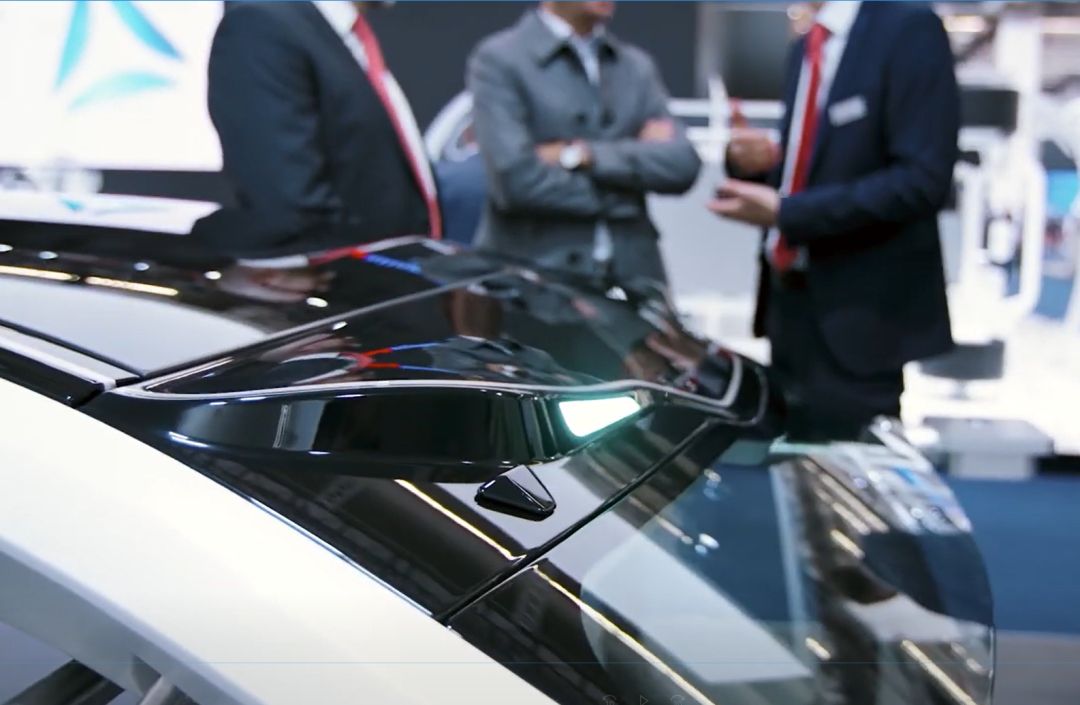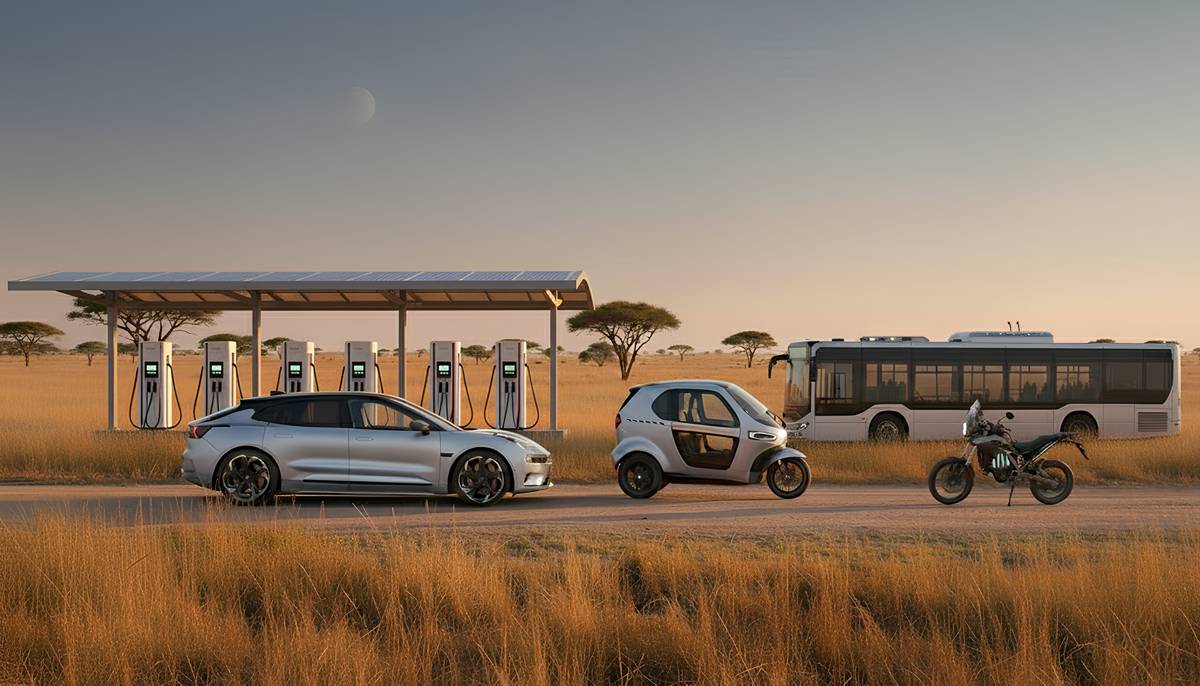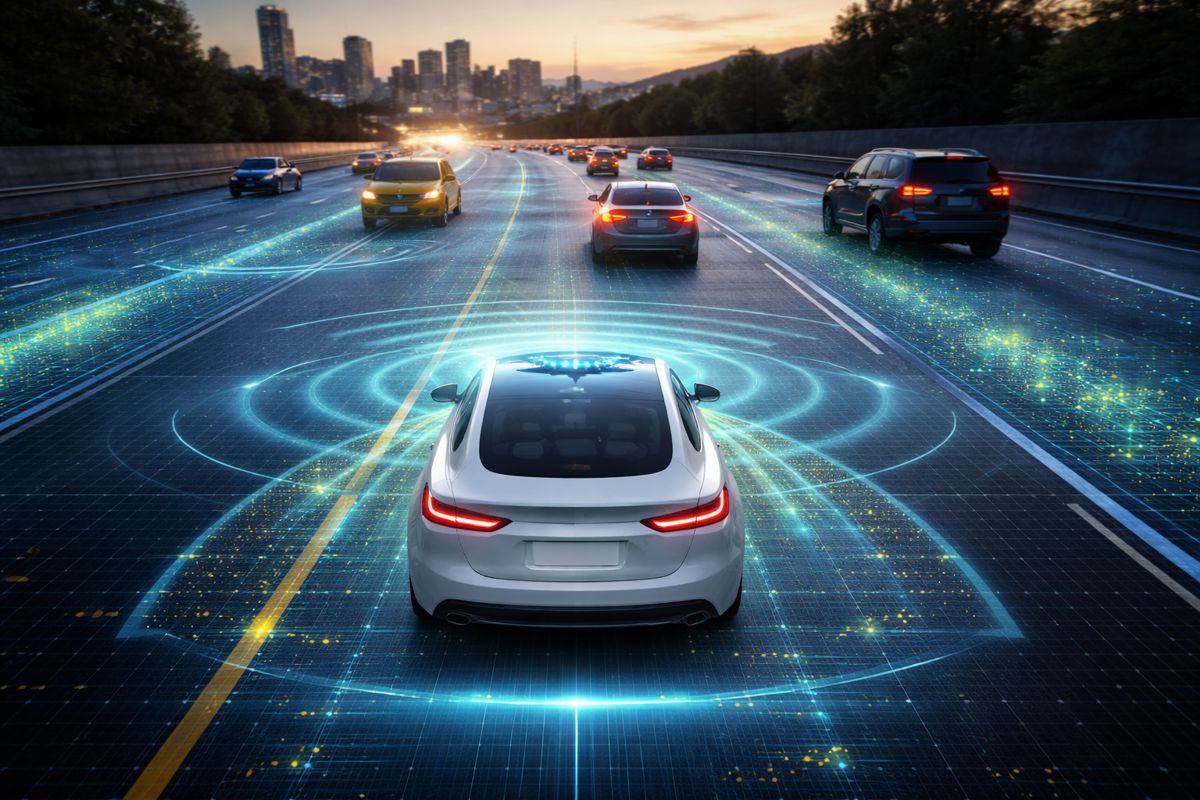RoboSense and Webasto working on Smart Roof Module with Integrated MEMS LiDAR
During the Shanghai Auto Show, RoboSense, a smart and automotive LiDAR system provider, and Webasto, the global Top 100 automotive supplier and market leader for roof systems, announced cooperation on the Smart Roof Sensor Module that integrated with RoboSense automotive-grade MEMS LiDAR RS-LiDAR-M1 for Level 3 to Level 5 autonomous driving vehicles, largely simplifying the structure and mounting process of conventional sensor sets of self-driving vehicles and ensures advanced safety perception.
Through this strategic cooperation, Webasto is committed to seamlessly embedding the RoboSense M1, camera and other sensor systems to the panoramic roof of vehicles to provide safer and more reliable environment perception information at the smallest possible space in the roof. The solution allows different roof systems to be mounted on the vehicle body, creating greater flexibility for the development of autonomous vehicles.
As the world’s market leader, Webasto offers the broadest product range of high-quality roof systems. The rooftop design not only enables the integration of sensor systems but also adopts highly rigid transparent material and the openable top function, which creates the feeling of freedom for the passengers.
The RoboSense M1 boasts 125 ultra-high resolution scanning beams, ultra-wide FOV of 120°*25°, and a maximum detection range of 200m (150M@10%). At present, the M1(thickness 45mm, depth 108mm, width 110mm) is the thinnest solid-state LiDAR on the market.
At the highest point of the vehicle, the M1’s unique mounting position in the smart roof module gives it the vantage point of view, which can greatly improve the detection ability of the perception system and ensure the safe and stable operation of the autonomous driving systems. Moreover, it costs less fuel consumption/NEDC mileage than other LiDAR products.
“Webasto looks for the most compact and state-of-the-art perception sensing systems on the market desired by our customers for roof-mounted integration. The RoboSense M1 meets these criteria and provides both promising size and suitability for roof integration,” says Brad Tang, Strategy & Product Planning Manager at Webasto.
Mark Qiu, RoboSense Executive President and Co-Partner says, “By combining the most mature roof module technology and the most compact size MEMS solid-state LiDAR, we provide the elegant, easy-to-integrate and one-stop smart roof solution with safety perception function to OEMs and end-users.”
The SOP version of M1 has fully met the OEM’s all automotive-grade requirements:
- M1 has successfully solved point cloud’s “corner cases” including high reflectivity objects, near-field obstacles, strong ambient light (direct sunlight), and interference from other LiDAR sensors, etc.
- M1 successfully passed the automotive-grade verification tests include mechanical and vibration, shock, EMC electromagnetic compatibility, human eye safety, chemical anti-corrosion, salt spray, high and low-temperature storage and operation, etc.
- Moreover, RoboSense has established China’s first automotive-grade solid-state LiDAR production line and would start mass production and delivery in Q2 2021.





























